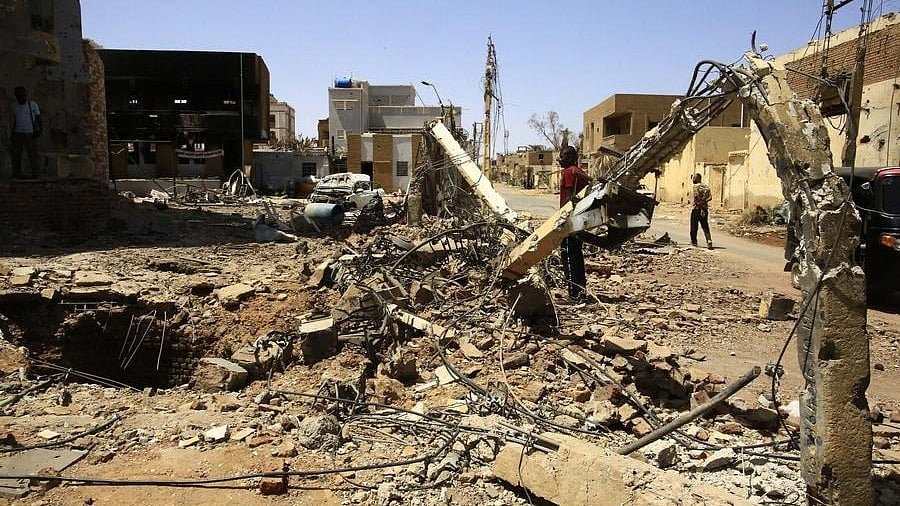World
Sudan violence rages on as humanitarians battle cholera outbreak in Darfur: UN
IOM reports about 7,500 people fled Abu Shouk camp and parts of El Fasher on Thursday and Friday due to rising insecurity

The humanitarian situation in El Fasher, the capital of North Darfur, has sharply deteriorated, according to the United Nations (UN), as deadly attacks, fresh displacement, and a spreading cholera outbreak compound civilian suffering.
“Deadly attacks and fresh displacement are compounding the suffering of civilians,” said the UN Office for the Coordination of Humanitarian Affairs (OCHA).“The violence continues to have a devastating impact on humanitarian response efforts.”
The International Organisation for Migration (IOM) reported that around 7,500 people fled the Abu Shouk displacement camp and parts of El Fasher on Thursday and Friday amid heightened insecurity.
UN under-secretary-general for humanitarian affairs and emergency relief coordinator Tom Fletcher warned over the weekend that El Fasher is on the brink, with many civilians living in famine-like conditions. He called for an immediate end to fighting between the Rapid Support Forces and the Sudanese Armed Forces, urging protection for civilians and unhindered humanitarian access.
Published: undefined
Cholera outbreak and response
Despite ongoing insecurity, the UN and its partners have launched a cholera vaccination campaign across western Darfur, aiming to vaccinate 1.9 million people.
OCHA reported over 5,200 suspected cholera cases in South Darfur and more than 250 deaths since May. Cholera, an acute diarrheal infection caused by the bacterium Vibrio cholerae, is a major global public health threat, particularly in areas with limited access to safe water, sanitation, and hygiene (WASH) facilities.
Most cholera patients experience mild to moderate diarrhea and can be treated with oral rehydration solution (ORS). Severe cases require intravenous fluids, ORS, and antibiotics, highlighting the importance of rapid response to save lives.
The World Health Organisation (WHO) emphasises the need for robust epidemiological and laboratory surveillance to detect and monitor outbreaks and guide effective interventions. Cholera outbreaks are often linked to conflict, population displacement, and climate events such as floods, droughts, or cyclones, which disrupt access to clean water and sanitation infrastructure.
Global cholera trends indicate a rising burden: in 2023 alone, 535,321 cases and 4,007 deaths were reported to the WHO from 45 countries. The discrepancy between reported and estimated cases often stems from limited surveillance systems and underreporting due to concerns over trade or tourism impacts.
With IANS inputs
Published: undefined
Follow us on: Facebook, Twitter, Google News, Instagram
Join our official telegram channel (@nationalherald) and stay updated with the latest headlines
Published: undefined